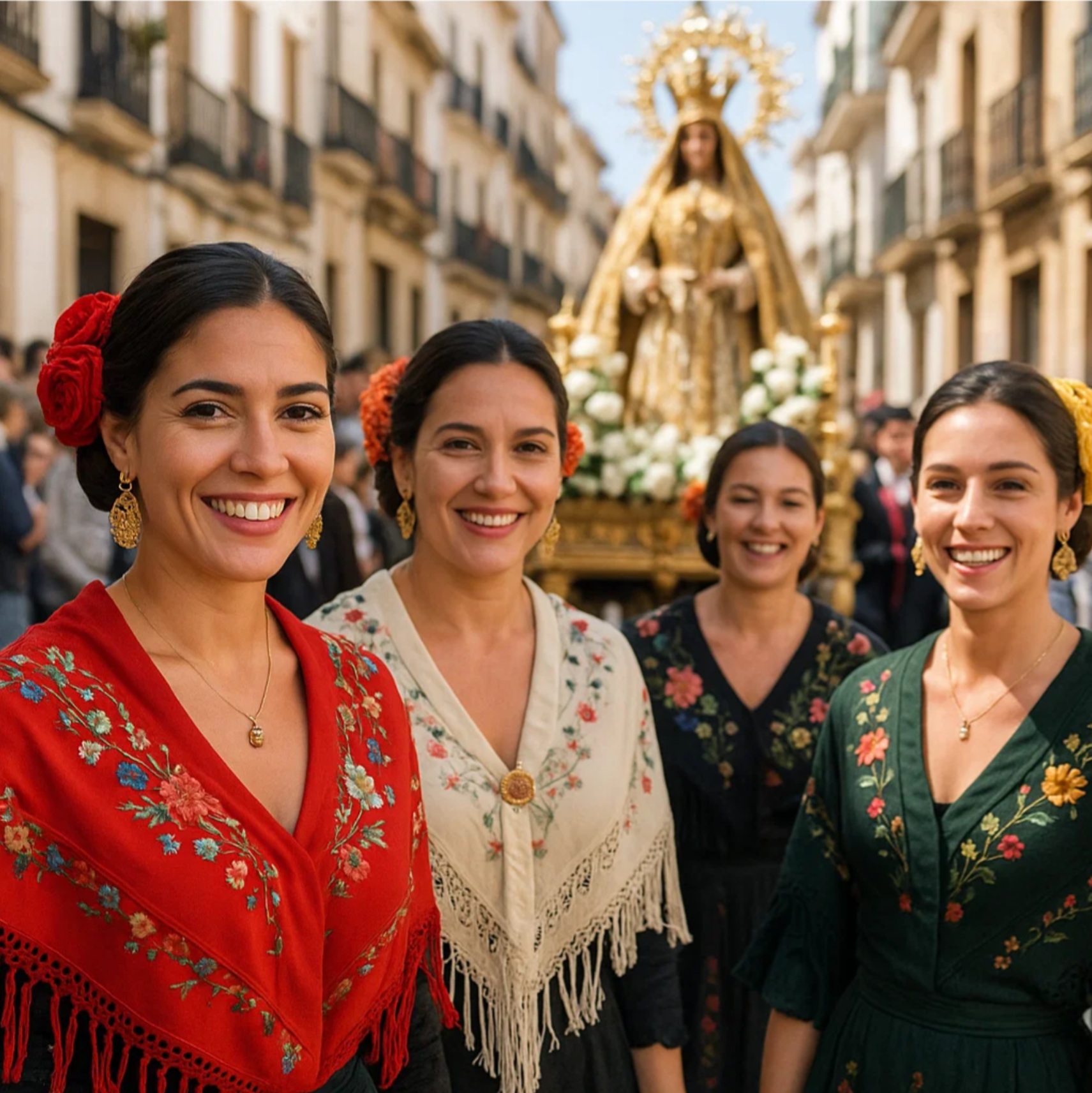
Patron Saint festivals
🎉 Festivals in Spain and Latin America
In Spain and Latin America, festivals are a big part of everyday life. They’re more than just parties, they’re a way for people to come together, share their traditions and have fun as a community.
Some are religious, especially linked to Catholic saints, while others are more local or just about enjoying music, food and being together. Whether it’s a quiet procession or a noisy street party, these celebrations are moments where everyone joins in and feels connected.
✨ The Heart of Tradition: Patron Saint Festivals
In many towns and cities across the Spanish-speaking world, people celebrate fiestas patronales: festivals in honour of a Catholic saint who is believed to protect the local community. These saints are often seen as spiritual guardians and each town usually has its own special one.
These festivals are taken seriously, but they are also full of energy and joy. They often include religious events like church services and processions, followed by lively celebrations with music, dancing, fireworks and food.
The tradition began during colonial times, when Spanish and Portuguese settlers brought Catholic customs to the Americas. Over time, these mixed with local Indigenous and African traditions, creating unique festivals that blend faith, culture and local identity.
This type of celebration is quite different from many English-speaking countries, where community festivals might focus more on history, food or seasonal events rather than religious figures. In the Spanish-speaking world, religion and community life often come together in a very visible and festive way.
✝️ Examples of Patron Saint Festivals
Here are a few well-known patron saint festivals that show how different regions celebrate their faith and traditions in their own special ways.
Some link directly to interactive activities, while others are short cultural readers:
-
Fiestas del Pilar (Zaragoza, Spain):
Honoring the Virgin of the Pillar with parades, floral offerings and concerts.
Presented as a gapfill activity to help you follow the story while practising El Condicional Simple (conditional tense). -
La Gritería (Nicaragua):
A colorful celebration that combines Catholic devotion with lively popular traditions in honor of the Virgin Mary.
Explore its unique customs through a reader activity designed to give you cultural insight in context. -
San Fermín (Pamplona, Spain):
Best known for the encierro (running of the bulls), this July festival also includes daily processions, traditional music, dancing and fireworks.
Practise key expressions in our gapfill activity. -
Mama Quilla: the Inca goddess of the moon (Peru: Inca civilization, Andes region):
Worshipped as the goddess of the moon, protector of women and marriage, Mama Quilla was central to the Inca religious calendar and lunar ceremonies.
Discover her story through our dictation exercise (only for Premium subscribers).
These festivals often reflect the soul of a community, where faith and folklore intertwine and generations come together to celebrate their shared heritage.
👶 Patron Saints and Local Names
In many towns across Spain, it’s common to name children after the local patron saint or virgin.
For example, in Zaragoza many girls are called Pilar after the Virgen del Pilar, while in Seville names like Macarena are popular thanks to the devotion to the Virgen de La Macarena.
This tradition shows how deeply festivals and faith are woven into everyday family life.
🎊 Why Festivals Matters
From a quiet town procession to a packed city street filled with dancing, festivals are moments when daily life pauses and something special takes over. They’re a chance to laugh, connect, remember and simply enjoy being together.
So if you ever find yourself in a town square filled with music, colour and dancing, don’t just watch from the sidelines. Step in, take part and experience it for yourself. It’s one of the best ways to feel the heart of a culture, and maybe even practise a little Spanish while you’re at it.
Looking for more festivals? Not all Spanish-speaking celebrations are religious. Discover playful and secular traditions like La Tomatina or Las Fallas in our companion article: Festivals Beyond Religion.